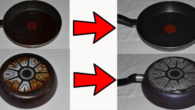
They have a long history: which Ukrainian words are the oldest
0
The Ukrainian language was formed over tens of centuries . But have you ever wondered what were the first words that proved its existence?
With a quick search on the Internet, you can find the statement that in the year 448 AD, the Byzantine historian Priscus of Panii was in the territory of modern Ukraine in the camp of Attila, the ruler of the Hunnic state, and wrote down the words “honey” and “dish”. Most of the materials claim that they were the first recorded Ukrainian words. But in reality this is a false statement.
Stukalo explains that it is important to realize that the Ukrainian language, like any other, develops by interacting with neighboring languages and the surrounding world. It has come a long way to develop into its present state, but it was not called Ukrainian all this time – such a name appeared relatively recently.
In previous eras, what later became Ukrainian was called “Russian language” or “Little Russian dialect”. Scientists include the period of their existence in the general age of the Ukrainian language, and words from these languages can be considered historically Ukrainian.
Around the 10th century, the ancestors of the modern Slavic languages split into so many dialects that they began to be considered separate languages. Ukrainian began to form from the Kyiv-Polish and Galicia-Podil dialect groups. This concept was put forward by the linguist Yury Shevelyov.
When this process was taking place, the times in history were also stormy – the Roman Empire fell apart, and the great resettlement of peoples continued. The Slavs also began to distance themselves from each other. Although we still feel the echo of those times. “The words of the Proto-Slavic language are a common lexical heritage, which now helps us to understand Czechs, Croats or Slovenes,” Stukalo points out.
The linguist provides a list of such words that have remained in circulation since the Proto-Slavic period:
- drink, eat
- bread, wheat, millet
- skinny (on an empty stomach)
- hand, leg, body
- man, woman
- butter
- beast
- spring, linden
But even this is not the deepest layer. Before the Proto-Slavic language, there was a Right Indo-European language, from which Proto-Germanic, Proto-Greek, Proto-Italian and so on came. “That's why English, Armenian, Greek, Ukrainian and Sanskrit also have common words, just imagine. And all these languages can also consider themselves his relatives,” Stukalo writes.
And gives several examples of related words from Ukrainian and English:
- маты/mother,
- маты/mother,
- li>
- brother/brother,
- daughter/daughter,
- widow/widow,
- crust/crust,
- young /young,
- worm/germ.
But this is not all the interesting connections between Ukrainian words and foreign words that date back to ancient times. So we borrowed the word “bread” from the Gothic language. There it had the appearance of hlaifs. The English took it and made a loaf out of it. And the German werden (“to become”) is a direct relative of our “to turn”.
If you want to know by what signs specialists began to distinguish the Ukrainian language, which was separated from Proto-Slavic, the blog provides several examples. Thus, from the point of view of Yuriy Shevelyov, such phenomena became the Kiev-Polish preservation of the sound combination kwě- where in the neighboring dialects it was kwě–. Example: we have the words “flower” and “flower”, not “flower” and “flower”. Also, in the Polish dialect, the sound combination skě- has been preserved, where there was ščě- around, for example, in the word “skipka”. you don't want to quarrel with Germans or Indians, say that the first Ukrainian word was the word “flower”. Agree, it is much more beautiful than the fictions about “honey” and “dish” in the Hun camp,” Stukalo concludes.
Earlier, OBOZ.UA told which Ukrainian words were borrowed by other languages of the world.
- маты/mother,









Leave a Reply